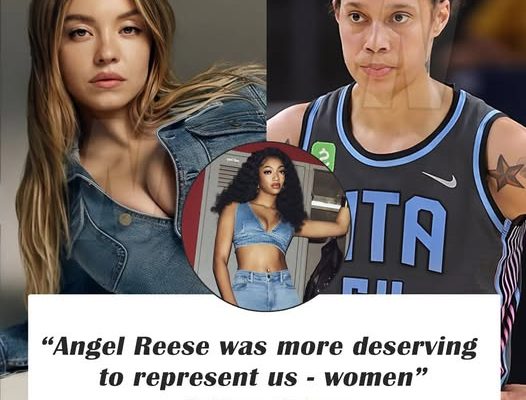New York, NY — WNBA star Brittney Griner has ignited widespread debate after announcing a boycott of American Eagle, just days after appearing in a new advertising campaign alongside actress Sydney Sweeney.
Griner’s decision, coupled with her pointed public statements, has quickly moved beyond the world of fashion into a larger cultural discussion about the role of branding, history, and accountability in modern advertising.
The controversy began when Griner took to social media to declare she would no longer be associated with American Eagle. “I refuse to wear something that represents ignorance masquerading as creativity,” she wrote, adding that elements of the campaign’s styling left her deeply uncomfortable. While the WNBA center did not provide extensive details, she drew attention to certain visual themes that, in her view, echoed the dark history of eugenics.
Taking to social media, Griner criticized the brand’s choice of representation, arguing that fellow athlete Angel Reese would have been a more deserving figure to symbolize women in the campaign. Her comments quickly went viral, sparking divided reactions from fans—some praising her for championing Reese and calling out the fashion industry, while others accused her of stirring unnecessary controversy.
Griner’s invocation of eugenics — a discredited and harmful movement historically tied to racial purity and discriminatory ideologies — quickly turned what might have been a routine celebrity-brand disagreement into a flashpoint.
Her comments framed the campaign not merely as a matter of taste, but as one that risked unintentionally aligning itself with oppressive historical narratives. “Fashion should inspire,” she explained in a follow-up post, “not remind us of humanity’s darkest mistakes.”
The remarks reverberated widely across social media platforms, where the reaction was immediate and sharply divided. Many fans and supporters praised Griner for speaking out and using her platform to highlight what she viewed as cultural insensitivity.
For them, her decision underscored the responsibility of both athletes and entertainers to question the industries they work with, particularly when representation and symbolism intersect with sensitive histories. “Brittney is telling the truth,” one supporter wrote on X, formerly known as Twitter. “This is what leadership looks like off the court.”
Others, however, criticized her stance as overblown, arguing that the campaign’s creative direction was being unfairly linked to troubling historical contexts. Some accused her of reading too much into artistic imagery, while others suggested that her public criticism risked undermining a collaboration that had not been intended to provoke controversy. “She’s reaching,” one detractor posted. “American Eagle isn’t promoting eugenics.”

The involvement of Sydney Sweeney has further fueled the conversation. Sweeney, a rising Hollywood star who appeared alongside Griner in the American Eagle promotion, has not yet commented on the boycott or the criticisms raised. Still, her name trended alongside Griner’s as online debates intensified.
While there is no suggestion that Sweeney herself played any role in the campaign’s styling or messaging, her presence in the advertisements has made her an indirect part of the unfolding controversy.
Industry analysts note that American Eagle now faces a challenging decision about how to respond. As of this writing, the company has not issued an official statement. Remaining silent risks prolonging speculation, while addressing the issue directly could require the brand to navigate a highly sensitive discussion that touches on history, cultural responsibility, and corporate accountability. Some observers believe the campaign could be quietly shelved if backlash continues to grow.
For Griner, however, the decision to speak out seems motivated by more than just a disagreement over fashion. In a closing message to her followers, she warned Hollywood and the fashion industry at large about the dangers of neglecting cultural context. “If Hollywood and fashion continue to use imagery without understanding its history, they risk losing the trust of the very people they hope to celebrate,” she said.
Her words reflect a larger trend in which athletes and entertainers are increasingly taking public stances on issues beyond their immediate fields, using their platforms to challenge industries they see as out of touch or careless. In Griner’s case, the boycott of American Eagle highlights not only her willingness to call out a brand she had just worked with, but also her broader insistence that fashion and advertising carry a responsibility to avoid harmful associations, whether intentional or accidental.
As debates continue online and American Eagle faces pressure to clarify its position, one thing is clear: Brittney Griner’s decision has sparked a conversation that goes far beyond a single campaign. It has raised difficult but necessary questions about the intersection of creativity, commerce, and history, and about the responsibility of cultural leaders to recognize the weight of the images they project.



